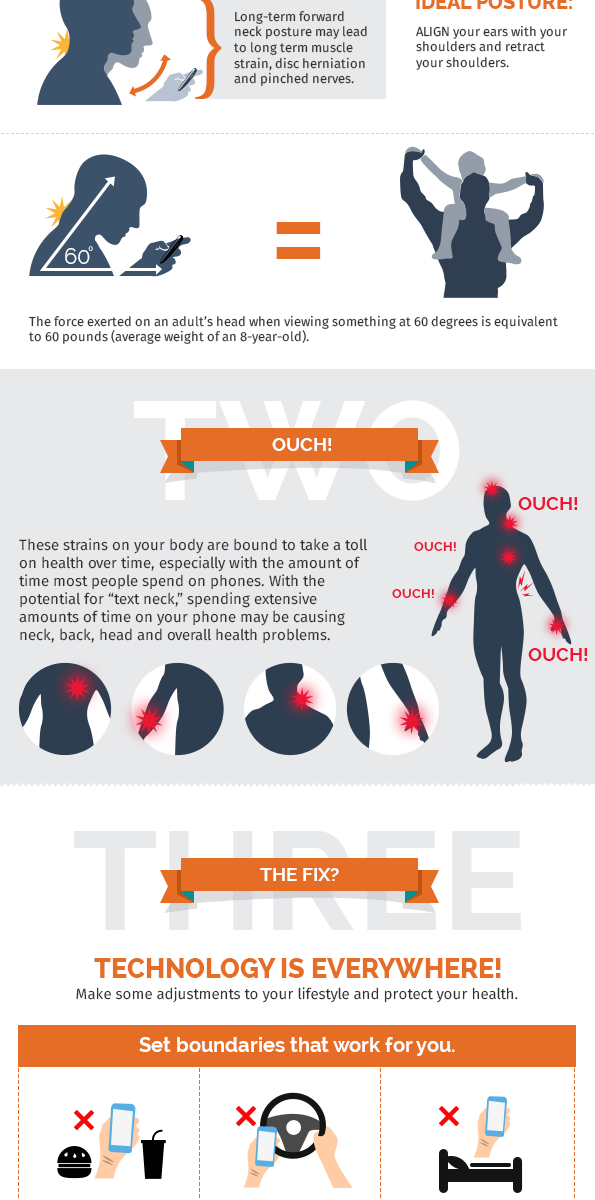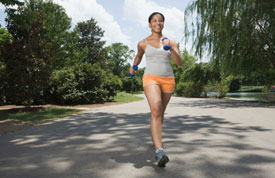Exercise: A Mood Changer
Ask a daily runner why she runs and you’re likely to hear, “It makes me feel good.” Those of us who aren’t fond of exercise of any type might find this really hard to understand. How can something that makes you sweat and pant actually make you feel good?
Can Exercise Affect Your Mood?
Simple answer – absolutely.
Let’s go back to our running example – some might say they run when they feel stressed out. Others might say they run after an argument with a spouse. Why do they say this? Because they feel different after a run. They may feel stronger, calmer or happier; many runners report that they experience a “runner’s high” that helps them to push past physical pain and limitations.
It’s a known fact that exercise releases certain chemicals in the brain, including endorphins and dopamine, which affect mood. Endorphins are the body’s natural pain killers – in fact endorphins are more powerful than morphine. They help an athlete to stay in the game and push past their pain after an injury.
The Benefits of Frequent Exercise
Some scientists claim that endorphins improve immune system function and lower blood pressure. They also have anti-aging effects because they attack superoxides, molecules that threaten living tissue and are responsible for illness and aging. They can also reduce anxiety and feelings of depression and raise self-esteem. Frequent exercise has a direct effect on endorphin release – the more you exercise, the more endorphins you produce each time you exercise!
Exercise also raises dopamine levels in the brain. Low dopamine levels cause you to feel mentally foggy and sluggish. Dopamine levels increase in response to a low or moderate amount of exercise. Dopamine can also help you to get a good night’s sleep unless you engage in too strenuous a workout, then it has the opposite effect of causing sleeplessness.
Add Chiropractic Care for Optimal Wellness
So aside from the major health benefits of exercise, including weight control and cardiovascular health, exercise also helps to boost your mood, increase pleasure and minimize pain. And when you add regular chiropractic care, adequate sleep and a healthy diet – you have all the makings of a lifestyle that supports optimal wellness and wellbeing!
Did you know that exercise is not only good for your physical health, but your mental health too? Kick up the cardio and boost your mood!
Read More
Chiropractic For Better Golf?
It’s been called the “gentleman’s game,” but more and more women are joining in as well. Many schools and colleges have teams and it’s considered the perfect game for networking or negotiating important business deals.
We’re talking about golf, and golf courses are big business, from building them to maintaining them, as more and more players are getting into the game!
Can Chiropractic Improve Your Game?
- Many golfers suffer from chronic low back pain. Back pain responds exceptionally well to chiropractic adjustments, increasing mobility and range of motion.
- Chiropractic care aims to help improve posture and flexibility, two components of longer and more powerful drives.
- We become less flexible with age and immobility (working at a desk job, sitting in a car driving everyday) contributes to that as well. Swinging a golf club requires collaboration on the part of many joints from the feet up to the hands, including ankles, knees, hips, spine, elbows and wrists. Lack of flexibility contributes to many repetitive motion injuries in the joints. Chiropractic care attempts to address, correct and prevent joint injuries.
- When combined with stretching and corrective exercises, chiropractic care is a cost effective, all-natural way to improve mobility… which translates to consistency during the four – five hours it takes to play 18 holes.
Fancy new high-tech clubs, shoes with the right spikes and the latest golf attire do nothing to improve your game. However, increased flexibility and mobility can certainly improve your golf score. Just ask the pros – nearly 75% of them receive regular chiropractic care while on tour each year.
Jeffry H. Blanchard, golf professional and author of The Geometry of Golf stated, “The chiropractor is the perfect choice to evaluate, educate, treat, condition and train those who choose to play golf.”
Do you want to power up your swing, painlessly? Discover what the pros know —chiropractic can improve your flexibility and your score!
Read More
Are You Proactive or Reactive?
When it comes to your health, ask yourself this question:
“Am I proactive or reactive?”
Being reactive means taking action only when you’re in pain.
Being proactive means doing what it takes to maintain good health.
Being reactive means getting up off the couch because your family member or friend told you so.
Being proactive means getting up off the couch and being active because you want to and you know it is good for you!
Being reactive means grabbing the quickest source of sugary sweets to combat a stressful moment.
Being proactive means eating healthy food (including healthy fats) when you’re hungry and when you need it most to properly maintain healthy stress levels.
Reactive = Symptoms
Being reactive can often be tied to symptoms. When you experience pain, this symptom tells you that something’s wrong and needs to be corrected. Correcting the cause of the symptom takes a level of commitment and sacrifice.
It takes being proactive.
No matter where you are on the reactive/proactive spectrum, we are committed to helping you maintain a healthy lifestyle.
What motivates you to make good choices about maintaining your health? Are you proactive or reactive when it comes to those choices?
Read More




